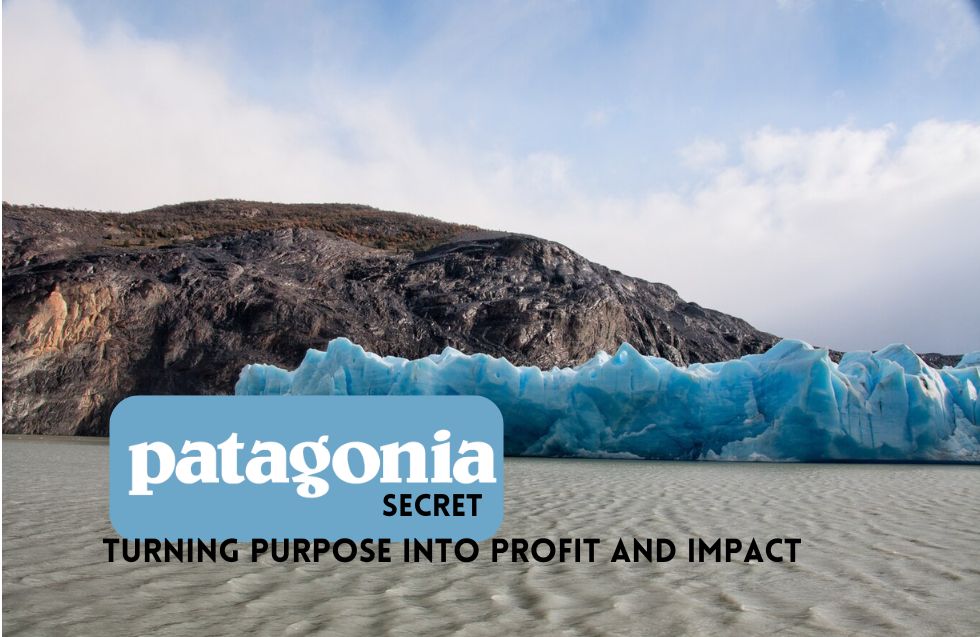In a world dominated by bottom-line-driven corporations, Patagonia stands apart as a beacon of purpose-driven business. With its commitment to environmental stewardship and social responsibility, the outdoor apparel company has successfully balanced profit with purpose—achieving impressive financial growth while creating a lasting positive impact. So, what is Patagonia’s secret? How has this privately-held company turned its ethical stance into a competitive advantage? Let’s unravel the story of Patagonia and the powerful lessons it offers for businesses aiming to align their operations with purpose and profit.
The Foundation: Purpose-Driven DNA
Patagonia’s ethos can be traced back to its founder, Yvon Chouinard, an environmentalist, rock climber, and reluctant entrepreneur. From the very beginning, Chouinard envisioned Patagonia as a company with a mission to “save our home planet.” This clarity of purpose set the foundation for every decision, from product design to marketing campaigns.
Unlike many companies that adopt corporate social responsibility (CSR) initiatives as an afterthought, Patagonia’s commitment to sustainability is deeply ingrained. In fact, its purpose isn’t a mere addition to its business strategy; it is the business strategy. By embedding environmental consciousness into its DNA, Patagonia has turned its values into a driving force for innovation, differentiation, and loyalty.
Turning Environmental Challenges into Opportunities
Patagonia views environmental challenges not as obstacles but as opportunities to lead. The company has consistently demonstrated that businesses can profit while promoting sustainability. Here’s how Patagonia has turned purpose into practical outcomes:
1. Innovative Products with a Purpose
Patagonia’s products aren’t just functional; they tell a story. From its Fair Trade-certified apparel to jackets made of recycled materials, the brand creates products that align with its environmental mission. For instance, its famous “Better Sweater” fleece is made from 100% recycled polyester, showing that sustainability can coexist with performance and style.
What’s more, Patagonia introduced its Ironclad Guarantee, ensuring customers that the company will repair or replace damaged products. This reduces waste, builds customer trust, and reinforces the brand’s commitment to durability over disposability.
2. Transparent Supply Chains
Transparency is a cornerstone of Patagonia’s operations. The company provides detailed information about its supply chain, including the environmental and social impacts of its factories and suppliers. By doing so, Patagonia invites accountability while educating its customers about the value of ethical sourcing.
3. Activism as a Core Business Pillar
Patagonia’s activism sets it apart from competitors. The company openly advocates for environmental causes, even going so far as to sue the U.S. government in 2017 over national monument protections. Patagonia doesn’t shy away from taking bold stands, leveraging its platform to amplify critical issues. This authenticity resonates with consumers who want to support brands that align with their values.
Profitability Without Compromise
Purpose-driven businesses often face skepticism about whether they can sustain profitability. Patagonia not only dispels these doubts but proves that doing good can drive financial success.
1. Loyal Customer Base
Consumers increasingly prioritize sustainability, and Patagonia’s commitment to environmental causes has cultivated a deeply loyal following. The company’s customers don’t just buy products; they buy into a movement. This loyalty translates into repeat business, strong word-of-mouth referrals, and brand advocacy.
2. Premium Pricing Strategy
Patagonia’s commitment to quality and sustainability allows it to command premium prices. Customers are willing to pay more for products that align with their values and last longer, reinforcing the company’s profitability.
3. Lean Marketing with High Impact
Patagonia’s marketing strategy focuses on storytelling and authenticity rather than flashy ads. Campaigns like “Don’t Buy This Jacket,” which encouraged consumers to think twice before making unnecessary purchases, not only reinforced its environmental message but also boosted sales by highlighting the durability and value of its products.
A Blueprint for Modern Leadership
Patagonia’s leadership has been instrumental in embedding purpose into every aspect of its business. Yvon Chouinard’s unconventional approach—rejecting traditional corporate norms and prioritizing the planet over profits—has inspired a new generation of leaders.
1. Empowering Employees
Patagonia fosters a work culture that mirrors its values. Employees are encouraged to participate in environmental activism, with the company offering flexible schedules and even bail money for those arrested during protests. Such practices not only attract mission-driven talent but also boost employee engagement and retention.
2. Ethical Succession Planning
In 2022, Chouinard took an unprecedented step by transferring ownership of Patagonia to a trust and nonprofit organization dedicated to fighting the climate crisis. This move ensures that the company’s profits will continue to fund environmental initiatives, solidifying Patagonia’s legacy as a purpose-driven brand.
Lessons for Aspiring Purpose-Driven Businesses
The success of Patagonia offers invaluable lessons for businesses looking to integrate purpose into their operations:
1. Align Purpose with Core Strategy
Purpose shouldn’t be an add-on; it must be central to your business model. Patagonia’s commitment to sustainability drives its innovation, operations, and customer engagement.
2. Be Transparent and Authentic
Today’s consumers are savvy and demand transparency. Authenticity builds trust, and trust drives loyalty.
3. Take Bold Stands
Don’t shy away from advocating for causes that align with your brand’s mission. Bold actions can differentiate your business and deepen your impact.
4. Invest in Long-Term Impact
Prioritize long-term value over short-term gains. Patagonia’s focus on durability, sustainability, and activism demonstrates that long-term investments in purpose can yield sustained profitability.
The Ripple Effect
Patagonia’s influence extends beyond its own operations. By demonstrating that businesses can thrive while prioritizing people and the planet, Patagonia has inspired countless companies to rethink their strategies. From startups to established brands, organizations are increasingly adopting purpose-driven models, recognizing that aligning profit with impact isn’t just good ethics—it’s good business.
The Takeaway: Profit and Purpose Can Coexist
Patagonia’s secret lies in its unwavering commitment to its mission. By turning purpose into profit, the company has proven that businesses can be a force for good while achieving financial success. As more consumers and employees demand ethical practices, Patagonia serves as a powerful example of what’s possible when purpose drives profit.
For businesses navigating the complexities of today’s market, Patagonia’s story is a reminder that success doesn’t have to come at the expense of the planet or society. By putting purpose at the heart of their operations, companies can create meaningful change—and build a legacy that lasts.












